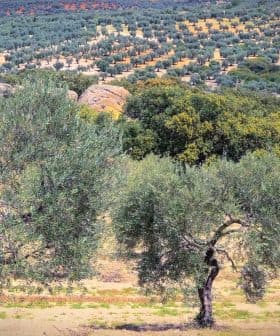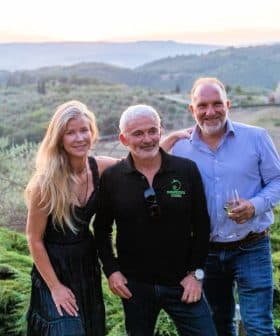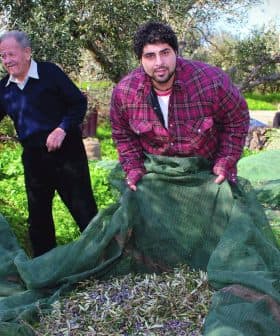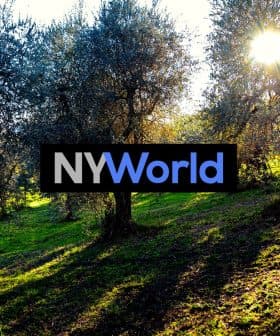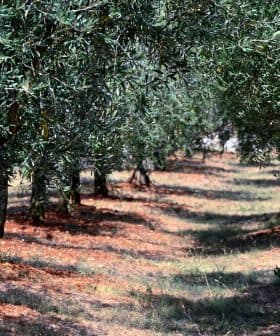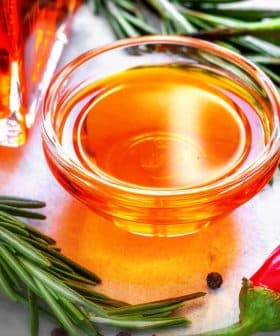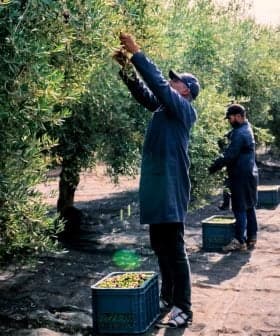Sustainable Practices Help North African Producers Triumph in Tough Season
Producers from Tunisia, Morocco and Egypt overcame drought and heat to earn 16 awards at the 2025 NYIOOC World Olive Oil Competition.
 Naouel Bouabid celebrated winning three Silver Awards at the 2025 NYIOOC for its flagship Damya brand. (Photo: Ksenija Hotic)
Naouel Bouabid celebrated winning three Silver Awards at the 2025 NYIOOC for its flagship Damya brand. (Photo: Ksenija Hotic) Producers in North Africa faced challenges in olive oil production due to labor shortages, high temperatures, and insufficient rainfall, but Tunisian, Moroccan, and Egyptian producers showcased resilience and adaptation at the 2025 NYIOOC World Olive Oil Competition. Despite these challenges, high-quality olive oil from Tunisia, Morocco, and Egypt received recognition and awards, highlighting the importance of sustainable practices and climate adaptation in olive oil production.
The challenging conditions of the past olive season in vast areas of North Africa impacted the production of high-quality extra virgin olive oil.
Tunisian, Moroccan and Egyptian producers showcased the results of their resilience and adaptation to labor shortages, high temperatures and insufficient rainfall at the 2025 NYIOOC World Olive Oil Competition.
Considering the low harvest of the previous season, Tunisian olive oil production rebounded in the 2024/25 crop year.
See Also:The best extra virgin olive oil from TunisiaLocal institutions anticipate that by the end of the season, the country will export up to 300,000 tons of olive oil, most of which is shipped in bulk, with a significant share destined for the European Union.
However, Tunisian producers showcased that the country is also home to award-winning quality, earning 12 awards from 18 entries at the 2025 NYIOOC.
Producers in neighboring Morocco and Egypt also had to cope with complex conditions, primarily due to the impact of reduced rainfall.
Two Moroccan producers combined to win a Gold and Silver Award at the 2025 NYIOOC, with Egyptian producer Wadi Food earning two Silver Awards.
“Our olive season in Tunisia is truly at the mercy of climate change these days,” said Naouel Bouabid, owner at Massiva, which earned three Silver Awards for its flagship Damya line of olive oil. “We’re seeing more and more unpredictable weather.”
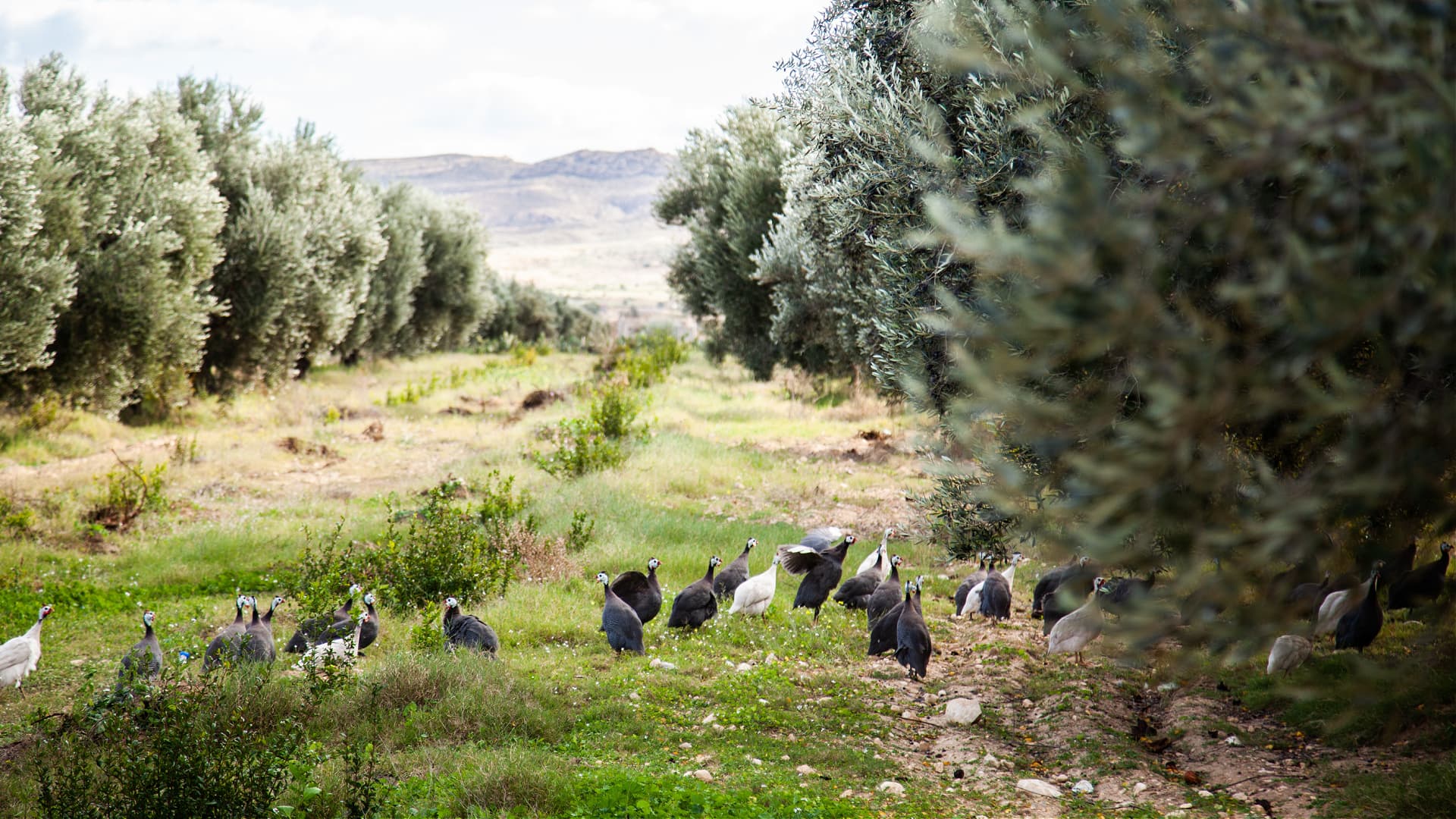
Naouel Bouabid celebrated winning three Silver Awards at the 2025 NYIOOC for its flagship Damya brand. (Photo: Ksenija Hotic)
Bouabid cited the out-of-season heatwaves and erratic rainfall as examples. “All of this makes farming a continuous effort of adaptation,” she noted. “Adding to that, the prickly pears – vital for our biodiversity and even olive oil quality – are under severe attack.”
“The cochineal insect has caused damage, costing us a huge part of our natural heritage,” Bouabid added. “Thankfully, the government and international partners are actively seeking solutions.”
In Tunisia, prickly pears support olive farming by stabilizing soil, conserving water and serving as windbreaks.
Their resilience in arid climates reduces erosion and wildfire risk. By diversifying income and enhancing biodiversity, they help create a more sustainable, climate-adaptive environment for high-quality olive oil production.
Despite these challenges, Bouabid said that the unique terroir, harvesting approach, and practices as well as the milling technologies, contributed to Massiva’s triumph in New York.
“We also maintain meticulous attention to detail in the cultivation of our olive trees, employing sustainable practices to ensure their health and longevity,” she added.
According to Bouabid, “winning an award at a prestigious competition like NYIOOC is an incredible feeling.”
“It’s a powerful validation of all the hard work, dedication, and passion we pour into every step of the olive oil making process, from nurturing the trees to the careful extraction and storage. It’s a moment of immense pride for our entire team,” she said.
Winning in New York is also relevant for the company as it focuses on exports to the United States.
“Effectively marketing our unique, high-quality Tunisian olive oil in the U.S. is a major challenge,” Bouabid said. “We compete with larger, established global brands with greater marketing power, requiring significant effort and investment in branding, origin and nationwide outreach.”
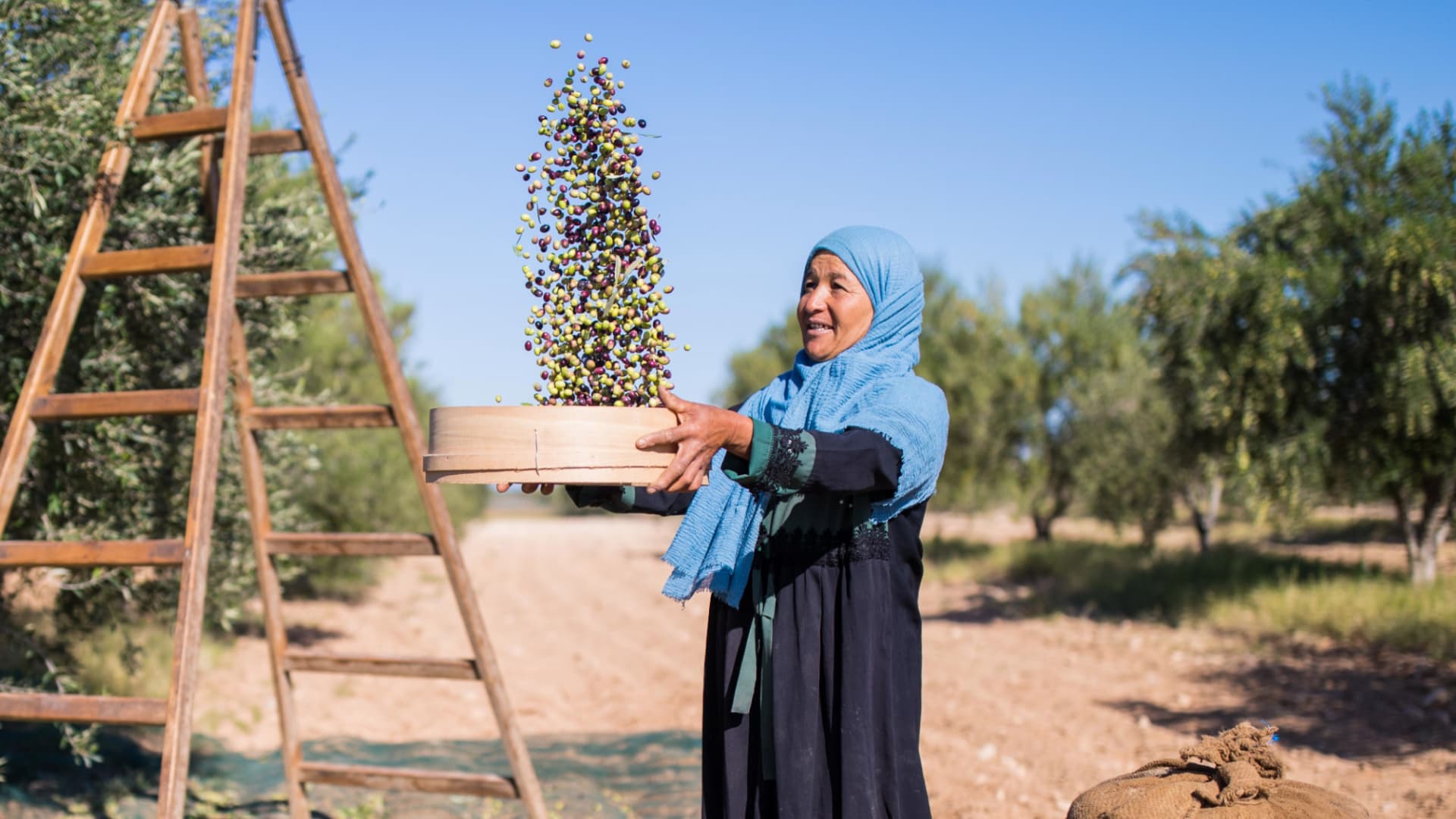
Olyfo earned a Silver Award for its medium-intensity blend of Koroneiki, Arbequina, Arbosana and Chemlali olives. (Photo: Olyfo)
Other high-end producers in the country agree with Bouabid, as many challenges had to be faced.
“We had a pack of challenges, ranging from workers’ availability and management to a very hot weather during summer,” said Ahmed Hamza, co-founder and managing director of Olyfo. “In some days it exceeded 48 ºC.”
Olyfo won a Silver Award at the World Competition for its 2500 Years of Tradition brand, a medium-intensity blend of Koroneiki, Arbequina, Arbosana and Chemlali olives.
According to Hamza, winning in New York fills him with pride and satisfaction. “It feels like our work is appreciated; it is an important recognition of the quality of the extra virgin olive oil we are selling to the world,” he noted.
In Morocco, the persistent drought and water scarcity have impacted the country’s production. Both high-end producers and other farms experienced challenges.
See Also:The best extra virgin olive oil from Morocco“We experienced a reduced harvest due to adverse weather conditions. The lack of rain in
Morocco was a disaster,” said Mohammed Dakir Berrada, founder and owner of Noor Fès in Morocco, and Ghizlane Tazi, general manager of the company.
Noor Fès earned a Gold Award at the 2025 NYIOOC with its monovarietal Moroccan Picholine.
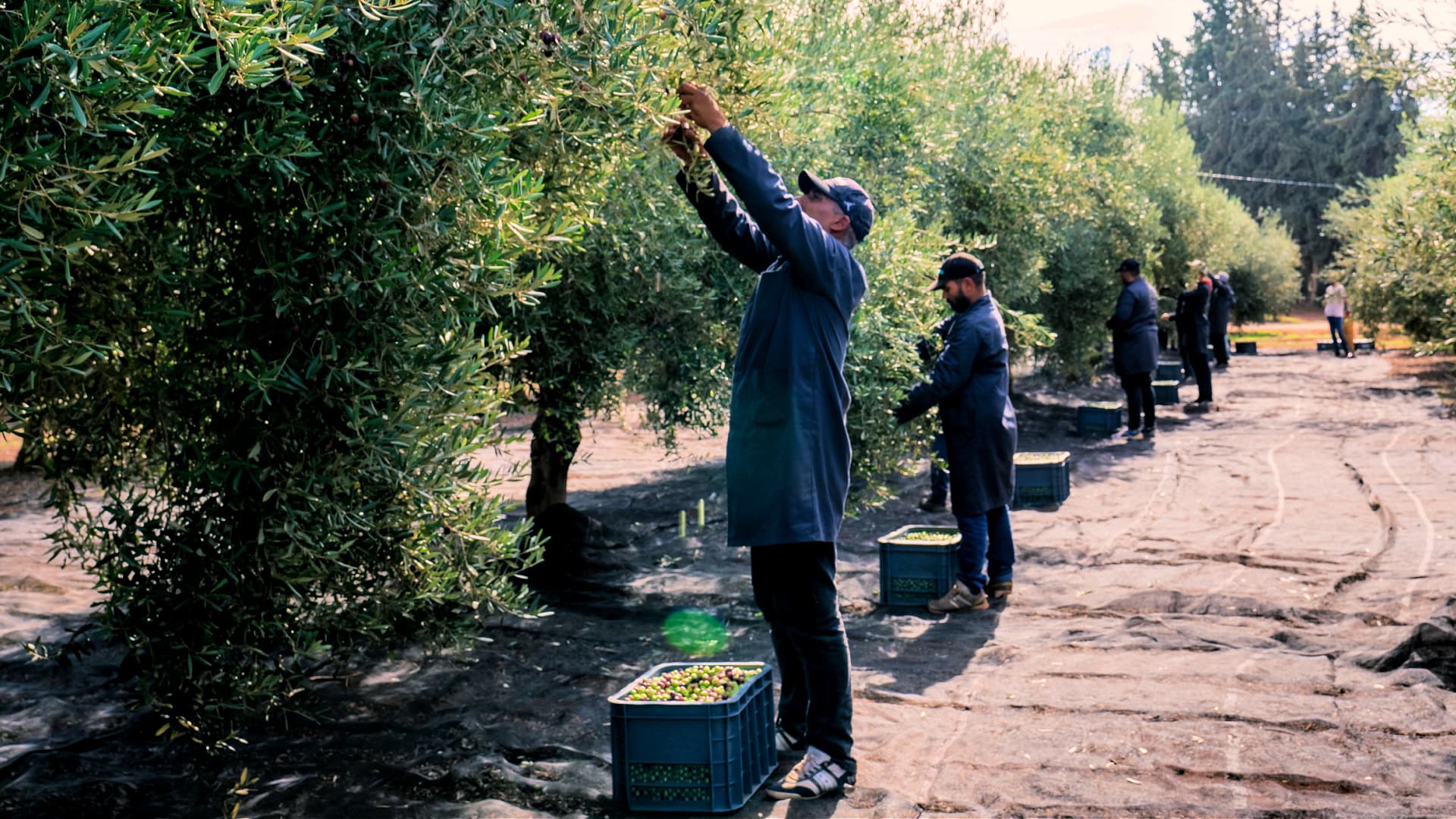
Two producers in Morocco, including Noor Fès, combined to win two awards at the World Competition. (Photo: Noor Fès)
“Climate change is now a global issue, and it is increasingly affecting olive production,” they said. “Climate change is reshaping our environment, but it also pushes us to do better.”
“Our olive oil, produced with regenerative and biodiverse systems, not only tastes better and offers more nutritional benefits, but it’s also part of a sustainable future,” Berrada and Tazi added.
The two noted that the award won by the company is the result of several sustainable practices, technologies and innovative procedures.
“This is our fifth consecutive award, which reinforces the consistency and excellence of our quality year after year,” Barrada and Tazi said.
“Furthermore, we are very committed to the U.S. market, which is a top priority for us,” they added. “Winning an award at the NYIOOC is helpful as it reassures U.S. consumers,”
Share this article


